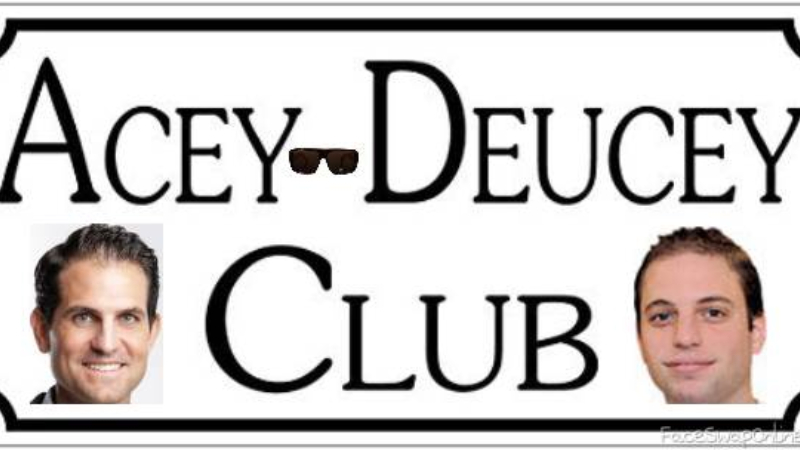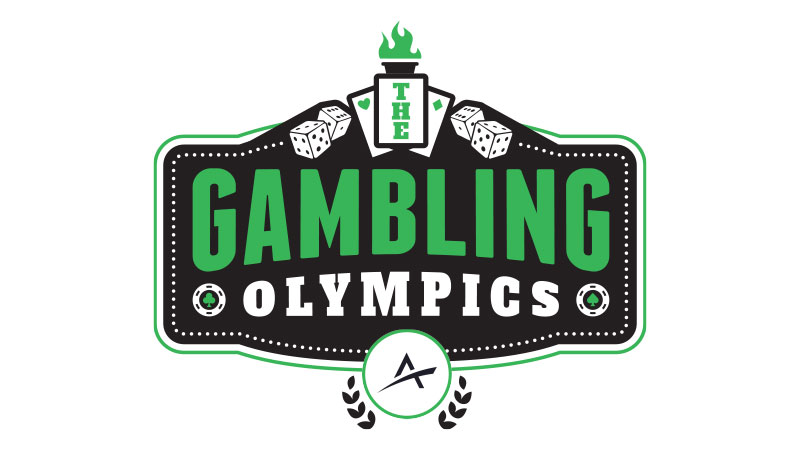The Highlights
- Acey-Deucey is one of 12 events in the inaugural Gambling Olympics.
- Each player will start with a set budget, and the player with the largest profit will be crowned the winner.
- Brandon Adams and Adam Levitan are the favorites at +300, and the other 10 competitors have identical +600 odds.
The 2018 Gambling Olympics is a two-day, 12-person contest taking place in Las Vegas on July 9-10. The buy-in is $2,500, and the winner gets $10,000.
Before, during and after the Gambling Olympics, we will provide extensive coverage via participant profiles, event breakdowns and live in-person analysis. Be sure to follow all the action in the Gambling Olympics section of the site.
Official Rules
If you haven’t heard of acey-deucey, you’re in good company: More than half of the competitors in the Gambling Olympics claimed they had to look it up as well.
There are lots of variations, but the standard premise is pretty simple: The game starts with each player putting up an ante to create a starting pot. After that, each player is dealt two cards face up, and they have to wager on the third card falling in between the first two card numbers. For example, if a player is dealt an 8 and a 10, the only way to win the bet is by getting dealt a 9 as their third card. The best starting hand is an ace and a deuce, hence the name of the game.
The strategy is basic enough: bet the minimum when you have awful cards and the max when you have great cards. If someone bets the pot and wins, each of the players has to ante up again and the round starts over.
What makes this game brutal is the swings. The pot starts small but builds over time and can lead to some crushing losses. I’ve personally played the game a handful of times and once had to run to the ATM after betting the pot with an ace-deuce and being dealt another ace.
On the Three Donkeys Podcast, Paul Lo Duca talks about playing during his time in the MLB and players having to pull out their checkbooks to cover their loses:
Individual Odds
Given that luck is so prevalent in acey-deucey — you can’t control which cards you’re dealt — it makes sense that each competitor is priced nearly identically.
- Brandon Adams +300
- Adam Levitan +300
- Peter Jennings +600
- Paul Lo Duca +600
- BlackJack Fletcher +600
- Michael Mooney +600
- Pete Manzinelli +600
- Joey Ingram +600
- Jonathan Bales +600
- Matt Brown +600
- Sean Koerner +600
- Scott Blumstein +600
Team Odds
- Team Jennings +140
- Team Levitan +140
- Team Bales +200
Who Wins Acey-Deucey?
Even though this is a game of chance, some advanced strategy can still be applied. A competitor can use mathematics to determine what the difference needs to be between the two cards they're dealt — also known as the spread — in order to find optimal situations. People much smarter than me have determined that a spread of eight is the breakeven point, so betting the minimum with a spread of seven or less and increasing your bet with a spread of nine or more is the optimal strategy.
While that’s simple enough in theory, it may be difficult in practice — when you’re getting dealt junk cards all night, sometimes a spread of six feels like a can’t-lose situation. Staying patient and waiting for optimal spots could make the difference between winning and running to the ATM.
Where's the Value?
I think the first thing we can do here is cross Levitan and Adams off the list. The game is still going to be largely luck-based even if played optimally, so it makes no sense to take one of the two favorites.
Outside of that, it’s tough to separate the remaining competitors and pick out a favorite. That said, I’m going to go with Jennings at +600. He has some experience playing the game, which gives him a solid leg up on some of his other competitors. He also has the analytical mindset to play optimally, and most importantly, he clearly has some #rungood in him given his pair of DFS world championships.
My favorite bet is Team Bales at +200. Even though Team Bales doesn’t have either of the individual favorites, does it really deserve to be priced that much worse than the other two teams? I think if we simulated this event 10,000 times, Team Bales would win just as much as other the other two squads, so I like the idea of grabbing the extra equity.
Individual Pick: Peter Jennings +600
Team Pick: Team Bales +200










































